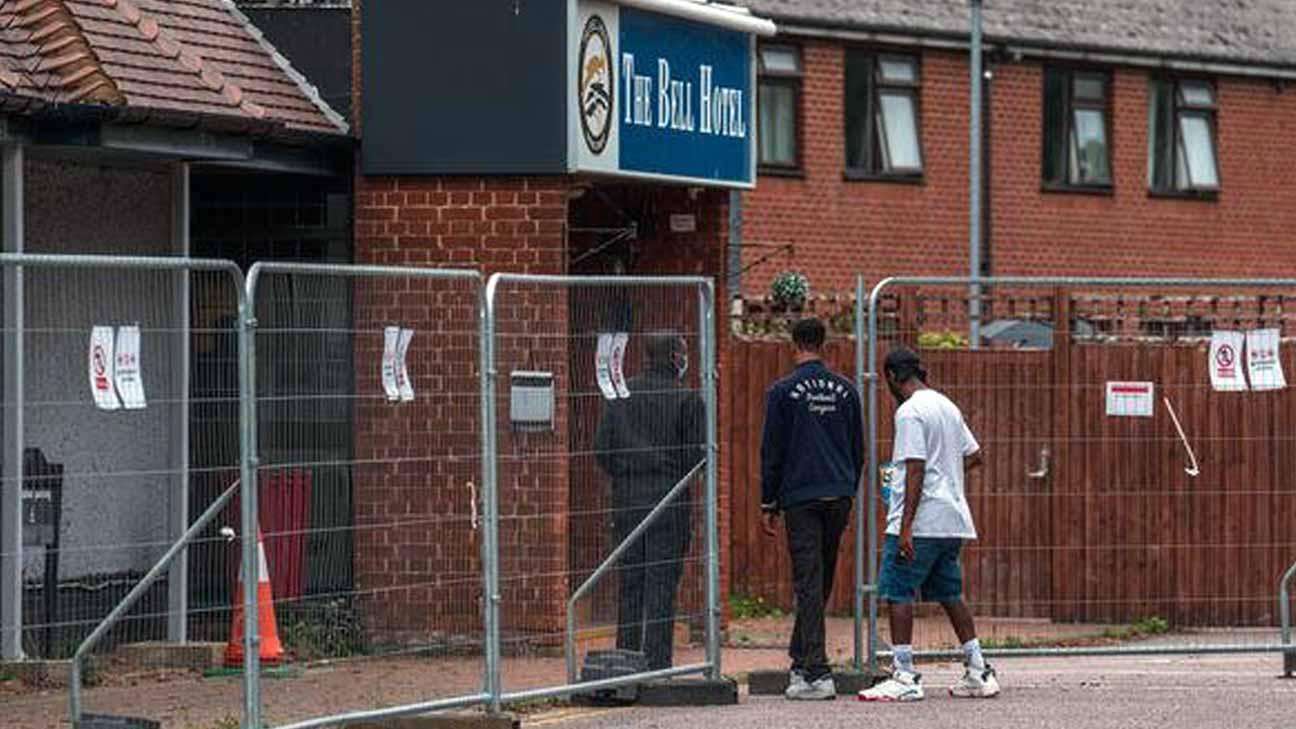The controversy surrounding a hotel housing asylum seekers in Epping, Essex, has escalated into a national political row, highlighting a deliberate and growing trend among some politicians to blur the legal and social distinctions between immigrants and asylum seekers. The debate gained traction after a senior Conservative MP, Robert Jenrick, visited a protest outside The Bell Hotel, claiming that schools were advising children to "avoid migrant hot-spots."
The Key Distinction: Immigrant vs. Asylum Seeker
While often used interchangeably in political discourse, the terms "immigrant" and "asylum seeker" have vastly different legal meanings.
An immigrant is a person who chooses to move to another country, typically for economic reasons, to find work, study, or to be with family. They are not fleeing persecution and can return to their home country. Their entry is governed by the host country's specific immigration laws, such as the UK's points-based system.
An asylum seeker, on the other hand, is a person who has fled their home country due to a well-founded fear of persecution, conflict, or violence. They arrive in another country and formally apply for international protection. Their status is protected under international law, specifically the 1951 Refugee Convention. An individual is an asylum seeker while their claim is being processed; if their claim is successful, they are granted refugee status. If their claim is denied, they may face deportation. The UK has a "generous asylum system" with defined legal routes, though recent policies have aimed to deter illegal entry.
The Political Blurring of Lines
In recent years, far-right political rhetoric has increasingly conflated these two groups, often using terms like "illegal immigrant" or "uncontrolled migration" to describe people who are, in fact, asylum seekers with a legal right to have their claims heard. This language is frequently used to portray asylum seekers as economic migrants who are "breaking into Britain illegally," and as a source of social problems and crime.
Robert Jenrick's attendance at the Epping protest, where he was photographed near a woman with a "Send them home" T-shirt, and his subsequent comments in The Sun echo this rhetoric. By claiming that people are frustrated with "mass, uncontrolled migration," he aligns the Epping protests—which are directly related to asylum seekers—with broader anxieties about legal immigration, even though the two are regulated by different systems. This strategy has been a hallmark of far-right groups, as they seek to legitimize their anti-immigration stance by framing it as a "perfectly legitimate anger."
The Epping Controversy and Wider Context
The protest in Epping was triggered by the arrest of an asylum seeker housed at The Bell Hotel, who was charged with attempting to kiss a 14-year-old girl. While the man denies the allegations and awaits trial, the incident became a catalyst for local and national protests. The controversy intensified when it was revealed that Mr. Jenrick was pictured near Eddy Butler, a founder of a now-banned neo-Nazi group, leading to a strong rebuke from the Labour party, which called the Conservative MP a "disgrace" for "standing alongside someone with a long history of involvement with neo-Nazi terror groups." A source close to Jenrick stated the MP was unaware of Butler's presence and was only speaking to "peaceful protesters."
The events in Epping are not isolated. They reflect a broader shift in UK political discourse, where inflammatory language about "alien cultures" and linking migration to crime has become more common. Critics argue this rhetoric fuels racial tensions and violence, and that it is designed to scapegoat vulnerable groups to distract from systemic issues.
You can learn more about the UK's approach to immigration and asylum policies in this video: UK's 'new plan for immigration' could be 'cruel and illegal' - YouTube.




_1.jpg)


.svg)
